EPIC-N Board of Directors
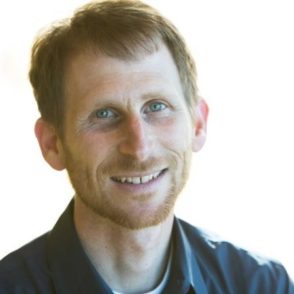
Marc Schlossberg, President
Co-Director – Sustainable Cities Institute – University of Oregon
Marc Schlossberg is a Professor of City and Regional Planning and co-director of the Sustainable Cities Initiative (SCI) at the University of Oregon where he has been since 2001. His teaching, research, and community engagement focuses on active transportation, livable community design, and the implementation of knowledge to policy and practice. A fun fact is that Marc has four times taught a study abroad course on designing cities for people on bikes, bringing students to Denmark and the Netherlands to learn first-hand from the best cycling cities in the world. Marc is a two-time Distinguished Fulbright Scholar serving in the United Kingdom from 2009-10 and Israel from 2015-16. Prior to academia, Marc worked in the nonprofit sector and was a U.S Peace Corps volunteer in Fiji.
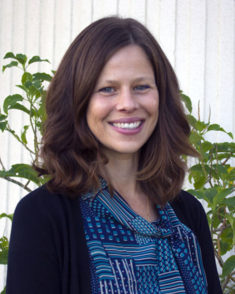
Jessica Barlow, Vice President
Executive Director – The Sage Project – San Diego State University.
Barlow is a professor and director of the Center for Regional Sustainability (CRS) at San Diego State University. She teaches and conducts research on language acquisition and bilingualism and serves on her university’s climate action planning council and senate sustainability committee. Within CRS, Barlow oversees the Sage Project, a replication of the Educational Partnership for Innovation in Communities (EPIC) framework. Barlow also has led sustainability-focused study abroad programs for students and curricular workshops for faculty.
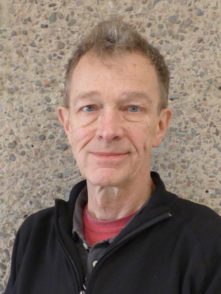
Joel Rogers, EPIC-N Chair and Secretary/Treasurer
Organizational Director – Center on Wisconsin Strategy – Faculty – University of Wisconsin-Madison
Joel Rogers is the Sewell-Bascom Professor of Law, Political Science, Public Affairs, and Sociology at the University of Wisconsin-Madison, where he also directs COWS, the national high-road strategy center. Rogers has written widely on American politics and democratic theory. Along with many articles, his books include The Hidden Election, On Democracy, Right Turn, Metro Futures, Associations and Democracy, Works Councils, Working Capital, What Workers Want, Cites at Work, and American Society. Joel is an active citizen as well as academic. He has worked with and advised many politicians and social movement leaders, initiated and helped operate several progressive NGOs (including the New Party, Economic Analysis Research Network, Apollo Alliance, Emerald Cities Collaborative, State Innovation Exchange, and the EPIC [Educational Partnership for Innovation in Communities] – Network). He is a contributing editor of The Nation and Boston Review, a MacArthur Foundation Fellow, and identified by Newsweek as one of the 100 living Americans most likely to shape U.S. politics and culture in the 21st century.
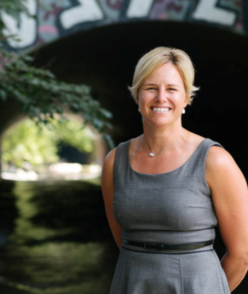
Kristin Baja
Climate Resilience Officer – Urban Sustainability Directors Network
Kristin Baja (‘Baja’) is USDN’s Climate Resilience Officer and is responsible for helping cities identify strategic ways to advance climate resilience planning and implementation and building their capacity to take proactive action. Baja focuses her time on supporting members and partners in working at the nexus of resilience, mitigation and equity while also helping center equity in their climate and sustainability work. She helps facilitate deeper relationships between local governments and stakeholders while helping to identify and shift focus to more collaborative and transformational action. Baja has over ten years of experience working on climate and equity with local governments and community-based organizations. She holds a Masters of Urban Planning and a Masters of Science from the University of Michigan. She is also an Aspen Global Change Institute Fellow and serves on several local and international advisory committees. In 2016, she was recognized by the Obama Administration as a Champion of Change for her work on climate and equity.
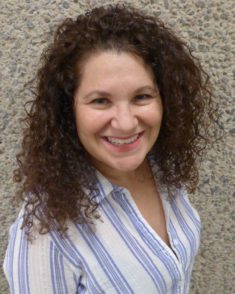
Laura Bloch
Sustainability Adviser – Region 9 – U.S. EPA
Laura Bloch has worked in the environmental field for more than 20 years on projects and programs with all levels of government, academia, non-profits, and industry. She is currently the Sustainability Adviser for the U.S. Environmental Protection Agency, Region 9 where she works on both regional and national policies and initiatives to enhance sustainability and resiliency. She led U.S. EPA, Region 9 in the design and implementation of its ISO 14001 certified Environmental Management System (EMS), and champions visionary initiatives that minimize environmental impacts of internal operations and programs. For example, she helped develop the national Sustainable Grants Policy based on a successful policy she championed in Region 9. She has also developed and implemented several training programs to enhance sustainability nationally and with other agencies. Laura has been recognized through several national awards including the James W. Craig Pollution Prevention Leadership Award. Dr. Bloch received her Doctorate degree in Environmental Science and Engineering from the University of California, Los Angeles.

Branden Born
Co-Director – Livable City Year – Faculty – University of Washington
Branden is associate professor of Urban Design and Planning and co-director of the Livable City Year program at the University of Washington. He received his master’s and doctoral degrees and in Urban and Regional Planning from the University of Wisconsin. Branden studies planning process and regional governance using the food system as a lens for analysis. His interests include questions of democracy in societal decision-making and the role of the state and planning in a neoliberal context.
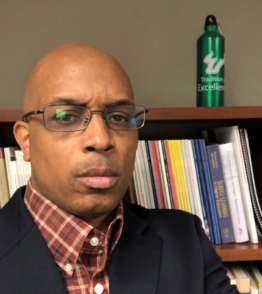
Mazi Ferguson
Assistant Program Director – Office of Community Engagement and Partnerships – University of South Florida
Mazhab is a Doctoral Candidate in Educational Measurement and Evaluation. Mazhab’s areas of interest include the effect of student motivation, specifically attitude, on student success in mathematics, assessment and program evaluation. Mazhab manages the operations of the University of South Florida EPIC-N Member Program, the Community Sustainability Partnership Program.
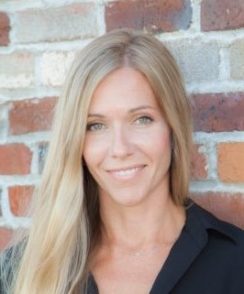
Courtney Griesel
Economic Development Director – City of Springfield, Oregon
Courtney Griesel is the City of Springfield, OR Economic Development Director. She has a Masters of Organizational Leadership from Gonzaga University and Bachelor of Science in Planning, Public Policy & Management from the University of Oregon. She manages two urban renewal areas, the community enterprise zone, transient room tax program and citywide economic development, including business retention, expansion, and recruitment. Her economic lens spans across the region and globe as she works as a global facilitator and trainer with the EPIC-Network and in partnership with the UN and EPA in European and South African communities. In March of 2017, Griesel was the keynote speaker at the Oregon Governor’s Mass Timber Summit, speaking to innovative use of secondary and mass timber products and the integration of these efforts and products into current development and traded sector opportunities.
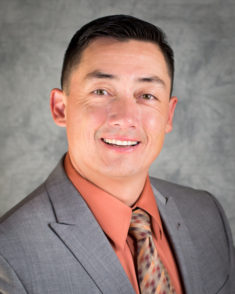
Mike James
Assistant City Manager / Public Works Director
Mike is the Assistant City Manager / Public Works Director for the City of Lemon Grove, California in San Diego County. In that role, he is responsible for leading a diverse staff providing all external city services including engineering, planning, risk management, right-of-way maintenance including all capital improvement projects facility/fleet maintenance, and sanitation district services. With a unique background that blends over 20 years of federal government, law enforcement and local government service he is able to synthesize laser focused solutions that take advantage of existing resources to address multiple issues facing the community.
He holds a Master’s in Public Administration from San Diego State University and a Bachelor of Science in Business Administration from Cal Poly State University, San Luis Obispo. He is also a full member of the International City/County Management Association, currently pursuing his candidacy as a Credentialed Manager, and he serves as a member of the Cal-ICMA Talent Initiative Program.
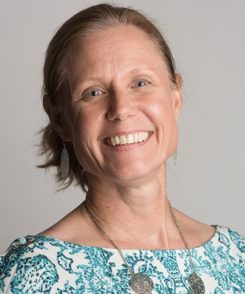
Anne Reichman
Director – ASU Sustainable Cities Network and Project Cities Program
Anne is Director of Arizona State University’s (ASU) Sustainable Cities Network and Project Cities Program. Celebrating a decade of service and award-winning partnerships in 2019, SCN is a program within ASU’s Julie Ann Wrigley Global Institute of Sustainability (GIOS) that convenes Arizona communities and tribes with the goal of providing educating and training opportunities; increasing information exchanges and collaborative opportunities; and increasing individual community and regional sustainability efforts. Anne also directs SCN’s new Project Cities Program, a university-community partnership pairing ASU students with a local city to co-create innovative sustainability solutions to local problems and challenges.
Prior to ASU, Anne served as Director of Earth911.com and 1-800-CLEANUP, and has over two decades of experience in the fields of recycling, solid waste and household hazardous waste management, and environmental education. Anne is a contributing author to the “Handbook on Household Hazardous Waste” which provides solid waste professionals and municipal officials with a comprehensive look at the state of household hazardous waste management. Anne holds a Professional Certificate in Sustainability Strategy and is a Certified Sustainable Building Advisor (C.S.B.A.).
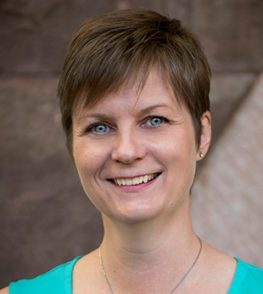
Jane Rogan
Director – Sustaining Hoosiers Communities
Jane Rogan leads the Sustaining Hoosier Communities (SHC) at the Indiana University Center for Rural Engagement. SHC is an initiative, connecting communities to IU courses, students, and faculty to address community-identified needs and opportunities. A Hoosier by choice, Jane grew up in Cheshire—a rural area of the United Kingdom known for its dairy production and silk weaving arts. Prior to joining the center, Jane worked for the IU Kelley School of Business, the Liberal Arts and Management Program, and the Office of the Vice Provost for Undergraduate Education.
Jane holds a Bachelor of Arts in business studies from Birmingham City University and a Master of Science in higher education from Indiana University.
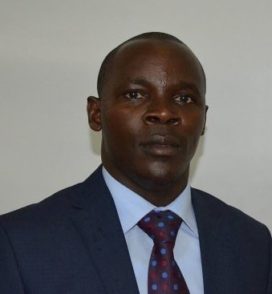
Gilbert Siame, EPIC Africa Leader
Director – Urban Regional Program – University of Zambia
Gilbert Siame holds a PhD and a MSc. in city and regional planning from the University of Cape Town in South Africa. He is a lecturer and researcher in the Department of Geography and Environmental Studies at the University of Zambia where he is also a co-founder and Director of the Centre for Urban Research and Planning (CURP). Dr. Siame teaches and co-teaches five courses in the Master of Science in Spatial Planning Programme. His research interests and projects include urban informality, urban sustainability, urban governance, planning education, transdisciplinary research methods, and the interface of planning theory and practice in the global South. He is the founding coordinator of EPIC Africa.
EPIC-N Advisory Board
Andrea Fox
Town Manager – Town of Garrett Park, Maryland
Andrea Fox is the Town Manager of Garrett Park, Maryland, a tight-knit community outside Washington, DC that is on the National Register of Historic Places and is also an arboretum. As Town Manager, Andrea manages the administration of the town. Since 2005 Andrea has worked in and with local and state governments, including the City of Omaha, Nebraska; the Nebraska State Legislature; the City of Napa, California; and the International City/County Management Association (ICMA). As local government staff, she implemented numerous sustainability strategies and policies and developed a sustainability plan. As an aide in the Nebraska Legislature, she assisted with the passage of laws that assess and reduce energy consumption. At ICMA, Andrea used her first-hand knowledge of local government to increase the capacity of local governments to create more sustainable and resilient communities. She has a Master of Public Policy degree from the University of Denver and is AICP certified.
Jessica Johnston
Program Director for Sustainability and Climate Change – ICMA
Jessica serves as ICMA’s Program Director for Sustainability and Climate Change. Jessica joined ICMA in early 2013 to manage the USAID funded CityLinks program. Based on the premise that cities learn best from each other, Jessica has been working with community leaders from across the globe to facilitate dialogues and record promising practices around climate resilience. As a strong believer in the power of locally led action, Jessica has worked with communities across the US, Australia, Asia, Africa, and the Caribbean to facilitate tailored solutions to pressing climate related challenges. Since joining ICMA Jessica has also directed knowledge management and communications efforts for USAID related to sustainable urbanization. Prior to ICMA, Jessica worked with several nonprofits to support a wide range of international and domestic projects focused on supporting local service delivery. Jessica has a Masters of Science in Public Policy and Management from Carnegie Mellon University’s Heinz College, where she was named a fellow with the Council of Women World Leaders. Jessica also served as a Peace Corps Volunteer in Jordan and has a BA from Chapman University in Peace and Conflict Studies.
Sean O’Donoghue
Director – Durban Adaptation Center
One of the EPIC Africa leaders and Head of Climate Change Adaptation Branch, eThekwini Municipality, Durban, South Africa. Dr Sean O’Donoghue has a doctorate in marine pelagic ecology obtained from the University of KwaZulu-Natal (UKZN) in 2010. In March 2011, Sean joined eThekwini Municipality, or Durban, where he manages the Climate Change Adaptation Branch. A key focus of the Branch is Community Ecosystem Based Adaptation, providing work opportunities for Durban’s indigent populations. Sean manages a number of research, inter-city and community partnership projects, and has led the development of the pilot EPIC programme at UKZN. (From Resilient Cities 2018 Website).
Tony Socci
Senior Lead on International Climate Policy – U.S. EPA
Dr. Anthony Socci is the senior lead international resilience and adaptation policy at the U.S. Environmental Protection Agency’s Office of International and Tribal Affairs (OITA) in Washington, DC. For nearly a decade, Dr. Socci has helped coordinate and facilitate several international efforts aimed at building capacity to become more resilient and sustainable, and to adapt to compound changes principally in urban and local settings in developing countries.
More specifically, Dr. Socci worked with a host of international partners to make actionable, the principles of the Durban Adaptation Charter (DAC), a pledge on the part of nearly 1000 elected local/urban government officials, largely from Africa and Asia, to take local action to build urban resilience and adapt. He also served as a long-standing member of the DAC steering committee.
Later, at the invitation of the UN Global Adaptation Network (GAN), Dr. Socci agreed to become a member of its Steering Committee. From this vantage point he, along with several international partners and other steering committee members, helped to formulate and implement an effort on the part of the GAN to deliver actionable, demand-driven information to regions and communities in developing countries deemed most vulnerable to the impacts of climate and other changes, through a process referred to as “adaptation learning exchanges”.
Most recently, Dr. Socci has worked with a host of international partners to introduce the EPIC (Educational Partnerships for Innovation in Communities) model to local governments and universities in developing country cities eager to enhance their capacity to become more sustainable and build resilience in the face of complex physical, natural and social forces. The EPIC model systematically matches city and local government needs with the innovation of students and academics to address a broad spectrum of sustainability-related issues, with lasting and sustainable impacts for all involved.
Maria Uhle
Program Director International Activities – National Science Foundation
Maria Uhle currently serves as the Program Director for International Activities in the Directorate for Geosciences at the National Science Foundation, where she develops mechanisms and agreements to foster international research collaboration through the Belmont Forum, the Inter-American Institute for Global Change Research (IAI) and Future Earth. She is the US representative to the Belmont Forum and is the current Chair of the Executive Committee of the IAI. She works with other US federal agencies on international cooperation through the US Global Change Research Program where she is the co-Chair of the International Activities, Inter-agency Working Group. Prior to her appointment at NSF, she served as an International Affairs Officer in the Office of International and Academic Affairs (OIAA) at the National Institute of Standards and Technology (NIST), where she developed programs to foster research collaboration with NIST’s international partners from countries in the Middle East, North Africa and South Asia. Prior to working at NIST, she served as a Program Officer for the National Academy of Sciences Polar Research Board and the Board on Atmospheric Sciences and Climate. She directed several committees that addressed topics relevant to the Arctic and Antarctic, and focused on reanalysis of historical climate data, and climate projections based on emission scenarios. Before joining the NAS, Maria served on the faculty at the University of Tennessee in the Department of Earth and Planetary Sciences. Her background includes degrees in environmental science and geology, and her research focused on investigating the fate of organic matter and contaminants in atmospheric, surface water and soil environments from urban areas and the polar deserts of Antarctica. (From the Aspen Global Change Institute website)
EPIC-N Staff
Marshall Curry
Program Manager – EPIC-N
Marshall Curry joined work supporting EPIC-N in September 2017. He manages day-to-day operations, provides support to member programs and board of directors. He currently lives in his hometown Springfield, Oregon. He received his MS in Educational Leadership and MPA from the University of Oregon in 2018 and received his BA in Sociology from Willamette University. His experience supporting nonprofit associations includes: serving on the Ford Scholar Alumni Association (2013-2018) board of directors as Vice President and Member-at-Large, preparing a diversity and inclusion report for the American Society of Association Executives, and volunteering with the alumni association for his alma mater. During graduate school he worked for the Sustainable Cities Institute and Inflexion, managing programs and assisting executives addressing different aspects of career readiness in higher education and public schools respectively. Prior to graduate school he managed workforce development programs and volunteer operations at Marion Polk Food Share.